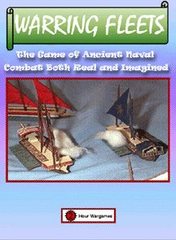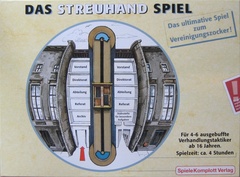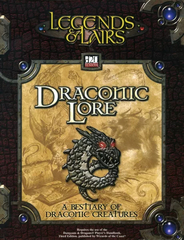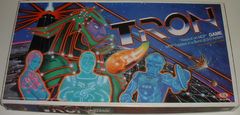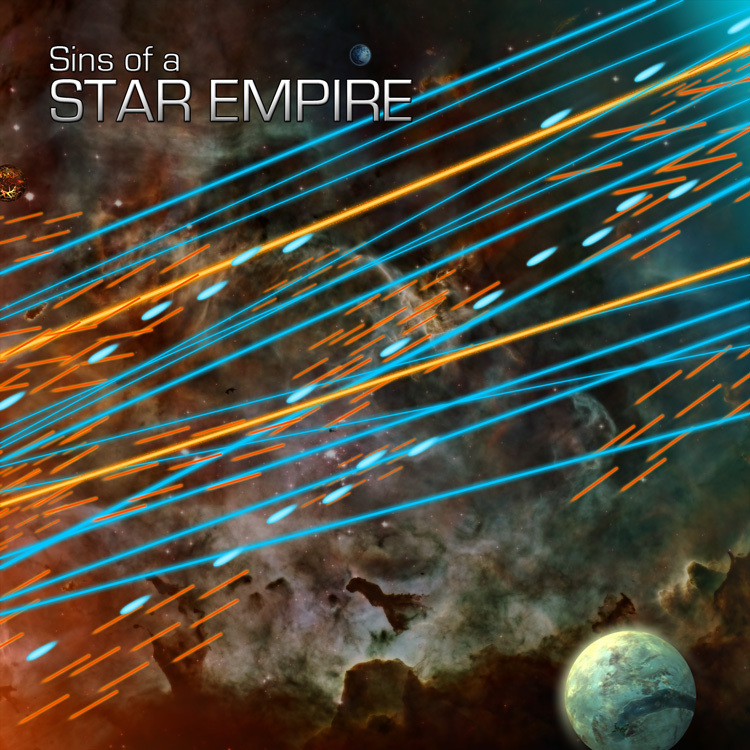
Sins of a Star Empire
-
Description
A boardgame inspired by the fantastic PC game Sins of a Solar Empire.
The game is more or less in the same respect as the PC game. You build ships, research technology, and expand your empire through vast star systems, of which several may be used at once.
Players will build massive fleets of varying ships and fight for control of the planets they need to yield resources, and spread their culture across one or more star systems. All while attempting to destroy another players Home World. Once a Home World has fallen, the game ends, and scores are totaled using a score card.
Scoring is the most detailed and elaborate part of the game. Players can earn points in all four different categories, including Military, Culture, Technology and Economy. There are also bonuses for players who scored the highest in any one of these areas.
- Sadly, the one who looses their Home World REALLY looses in points. Trying to work this problem out so they don't feel like they loose so badly, while keeping book keeping down to a bare minimum. Any suggestions on how to do this would be greatly appreciated. This is one of the main things I have yet to really work out.
Features:
-- 3 unique races, each with special abilities, research trees, and "Home World advantages".
-- 3 different resources to manage, along with a black market, on which you can sell or buy these resources if you cannot acquire them through "legal" means.
-- All planet types you can expect to find: Terran, Desert, Volcanic, Ice, Asteroids, Worm Holes...
-- Several ship classes, including Frigates, Cruisers and Capital Ships.
-- Bucket of Dice combat system makes the battles fast and easy, while still having the epic space battles that the PC game delivers.
-- Semi-Modular game boards. The star-system boards are set up with blank spaces linked by phase lines to place planets. Set up a random map, or design your own. Each map also has 2 different colored Phase Lines for smaller or larger games.
-- Pirates occupy each undiscovered planet, with the player opposite of you rolling for the Pirates. This allows for a bit more interaction in the beginning of the game.
-- Cheap. Besides the dice, you only need to print out a few items. The only thing you really need to print with quality is the Star System board, and two 4x6 sheets of game counters.Designer Note: I do not own any of the rights to the PC game, nor do I intend on making any sort of profit from it in the slightest.
A note from the designer:
I wanted a easy-to-play, cheap-to-make 4X game so I could play it with the kids I work with. Sadly, most Civ type games out there are either not easy to play, or not very cheap.
I had been playing Sins of a Solar Empire for weeks on end by the time the idea came to me to create a board game inspired by it! I jotted down some rule and mechanic ideas, and played around with some concepts in Photoshop. It came together so quickly and easily, I was finished with a prototype within a day (of course it looked awful though)!The Combat System:
I wanted to make the scale feel as massive as possible. In the PC game, you can literally control hundreds of units over the span of several solar systems. It was very important to me that I came up with a effective, yet simple no-book-keeping method to simulate such a huge scale. Tons of dice of course! There would be a different dice "class" for each of the major ship classes in the game. From the lighter Frigate, to the massive Capital Ship. In a classic Axis and Allies dice rolling style, each class would have a "to-hit" number. After all hits are calculated (which after some memorization, takes but seconds) the hits are assigned to enemy ships. Simple, easy, but sadly, with those attributes comes the massive amounts of dice needed for more than a couple of people to play. But man, something about throwing 30+ dice at your opponent feels good.The Map:
Much like you can in the PC game, the overview of the solar systems are the base map, on which Planet Tokens may be placed in set "gravity wells". These gravity wells are connected by a series of lines which allow the movement of fleets from one world to another. Easy stuff. Plus, it allows for semi-modular maps, which can be random, or allow players to create their own set up. Multiple solar system maps can be added to make the game truly massive without taking much room (or money), but also adds quite a bit more time to rule the known galaxy.Fleets move on the board on planet at a time using fleet position markers. You are able to get more than one of course through upgrades. Have 2 ore more fleets will allow you to control, defend or attack two places at once.
Making it 4X:
Resources that are featured in the game were simplified, and given only by the main planets that offer the most of a resource. In the PC game, you can have a planet that will give a player Credits, Metal and Crystal. Not so in this version. While all three resources are used in the game, planets give you only one or two of the resources at once. This keeps things easily memorized though, and saves tons of time.
Technology was another thing that I was bogged down by at first. Trying to find ways to make a huge tech tree that would be manageable, taking little table space and money, while also giving the game a true 4X feel. The solution was a tech "card", which is double-sided, and can be placed in a standard card sleeve and marked with a dry-erase marker. Easy, clean, and very little book-keeping. I also narrowed each races technologies down it is very core. Only a hand full of the techs in the PC version made it, if that. I also took many liberties in this area as far as staying true to the PC version. While the BASIC effects are still there, I added a lot of personal flavor to them to make them powerful enough in themselves to make a difference. Each race has a pretty different set of techs and abilities, giving each race a different feel.
Let's put it this way. The PC game is more about adding small increases over time to eventually add up to something substantial. The board game version couldn't do this.
Empire! Culture! A huge part of the game that I just had to implement. I wanted to keep the idea that your cultures meant something. In the PC game, you can literally repel another players culture so much, that they loose planets that are over-come by your own culture! Sweet! Unfortunately however, you cannot do this on the table. The good news is though, that culture still does mean something. In the case of economics, it will cost more to colonize planets that are far away. Also, you cannot colonize worlds that would be to saturated by another players culture. You can loose a planet to culture, but it is rare, and if you play right, it will never happen.Pirates! Arr:
Much like the PC version, each undiscovered planet will have pirates guarding it's riches. To give more players interaction in the beginning of the game, the player opposite of you (or on another team) rolls for any pirate attacks you encounter.
Players may also place bounties on each other, on which pirates will attack players who have the highest price on their heads.Scoring:
The last part of this "note", if you've read through this whole thing, you deserve a very large chocolate chip cookie (unless of course you don't like chocolate chip cookies... In that case, you can have different kind of cookie of your choice).
Scoring is done by applying and scoring points for different aspects of the game. Every 6 turns (for now), players quickly add up their scores for different categories. At the end of the game, after a ending condition has been met, players score for more detailed aspects of their empire. The categories include Economics, Technology, Empire, and Military. If a player has the highest score in one of these categories, they get a bonus added to their score. This allows players to organize their strategy based on trying to get these bonus scores. This also gives the game a lot more flexibility as far as strategies go. A player can win by having a strong empire/culture, even if he just got his butt kicked and lost a huge fleet.Hope that gives you a more overview of the game. I had nothing to do, and I wanted to update the page somehow, lol.
-
Details
Ages: 10 and upCategory: Civilization, Dice, Economic, Science Fiction, Space Exploration, Video Game Theme, Wargame,Designer: Joshua LovePublisher: (Unpublished)Time: 90 minutesYear: 2010

